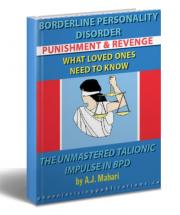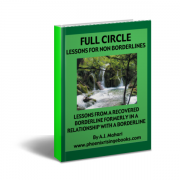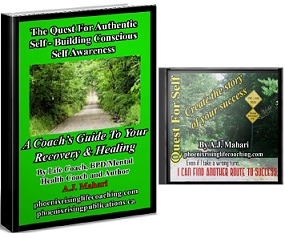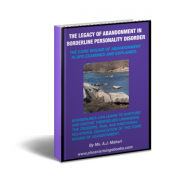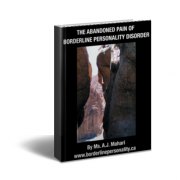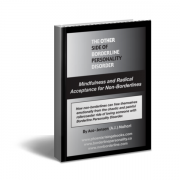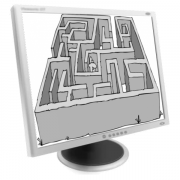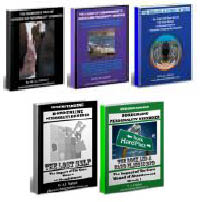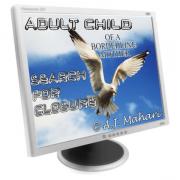Dialectical Behavioral Skills Training (DBT)
Dialectical Skills Training, founded by Dr. Marsha Linehan, (DBT) consists of 4 main modules: Mindfulness, Emotion Regulation, Distress Tolerance, and Interpersonal Effectiveness Skills. DBT therapy is usually carried out in a group context. In the skills training groups patients are taught skills considered relevant to the particular problems experienced by people with Borderline Personality Disorder.
People diagnosed with Borderline Personality Disorder experience arrested emotional development at a young age that leaves profound scars from childhood that have lasting consequences to your the inner child inside. Issues that remain and that need to be addressed. Issues that will continue to make emotion regulation difficult and that will continue to create relational difficulty as well. The part of you that needs the soothing that mindfulness, radical acceptance, and other DBT skills can help you learn, is your inner child.
orA.J. Mahari is currently writing a memoir about her life and experience as a person who had two parents with Borderline Personality Disorder, as a person who was diagnosed herself with BPD at the age of 19 and from her perspective as someone who has recovered from BPD. There is a new section on her BPD Blog called The Diary - My Borderline Years that will give you a little taste of what is to come in her memoir about her life with BPD and recovery from it.
- Purchase all 3 of ebooks for NON BORDERLINES or 3 Non Borderline Ebooks packaged together with audio.
Here are a few of the concepts that Dr. Linehan presents in her DBT Skills Training. I have just given my own understanding of them as someone who has recovered from BPD. I believe that whether or not someone with BPD can get into formal DBT, there is so much that can be gained and that can begin to help you improve the quality of your life, by reading Linehan's books and learning and practicing the four modules of DBT Skills Training.

Accepting Reality
This concept focuses on learning to accept reality as it is. I learned in my recovery that it wasn't until I accepted what was that I could gain enough conscious awareness of it to then begin to assess what I needed or wanted to change. When those with BPD first learn to accept reality it is often not as one would like it to be. That's where Linehan's concept of "radical acceptance" plays such a crucial role in the entire process of accepting reality. Without this kind of radical acceptance, change isn't possible. Accepting reality is also about unearthing many of the illogical and cognitively distorted interpretations that are the hallmark of "borderline thinking". Remember what you think will drive how you feel and both combined effect how you will behave or what actions you will choose. Often those with BPD aren't consciously aware - as I talk about in my audios and videos of the difference between how they think and what they feel. It is really how one thinks that most influences how one feels. For many with BPD, however, they have a framework of what I'd call "borderline reality" that is skewed, polarized and influenced by what is a lot of emotional reality that is not in the conscious awareness of those with BPD.
Letting Go of Emotional Suffering
DBT Skills practice can be very effective in helping those with BPD learn how to let go of emotional suffering. Emotional suffereing that is by and large driven by the highly negative and polarized ways that people with BPD actually think. Letting go of emotional suffering is a choice. For those with BPD it often doesn't "feel" like it's that simple, but the truth of that matter is that it is all about learning to make new choices.
Improve the Moment
You can learn through the practice of DBT Skills to improve the moment, one moment at a time. In fact, many people in the active throes of BPD, are so unaware of the here and now moment that is unfolding that this very reality drives a lot of polarized and distorted thinking.
The Pros and Cons of Tolerating Distress
To the person with BPD the thought that there are pros and cons to tolerating distress may seem a foreign concept at first. However, Linehan explains this concept well, in her DBT Skills books. One has to actually sit down and think about how you experience distress, why you are distressed (and explore this in therapy). It is also helpful to examine what are the perceived benefits of self-harm and the many other "acting in" or "acting out" forms of behaviour that borderlines engage in because they do not know how to tolerate the emotional distress of what Linehan calls "dysregulated emotion".
Self-Soothing
Self-soothing techinques are important for those with BPD to learn how to implement. One of the central realities to life in the borderline zone of dysregulated emotions is an inability to soothe oneself.
Reducing Vulnerability to Negative Emotion
Those with BPD are vulnerable to negative emotion because so much of the patterned ways that they have learned to think within are polarized and cognitively distorted by layers and layers of defense mechanisms all designed to protect the borderline from his/her abandonment trauma. In the active throes of BPD most borderlines experience negative emotion as a way of life.
© A.J. Mahari 2008
"Facing 10 Main Key Facts About Borderline Personality Disorder - On The Other Side of BPD - For Loved Ones and Family Members of those With BPD"
Audio Program by A.J. Mahari.
- Purchase all 3 of ebooks for NON BORDERLINES or 3 Non Borderline Ebooks packaged together with audio.

DBT Practical Approach for Eating Disorders
DBT Treating the dramatic symptoms of BPD
DBT: A Promising Treatment for BPD






